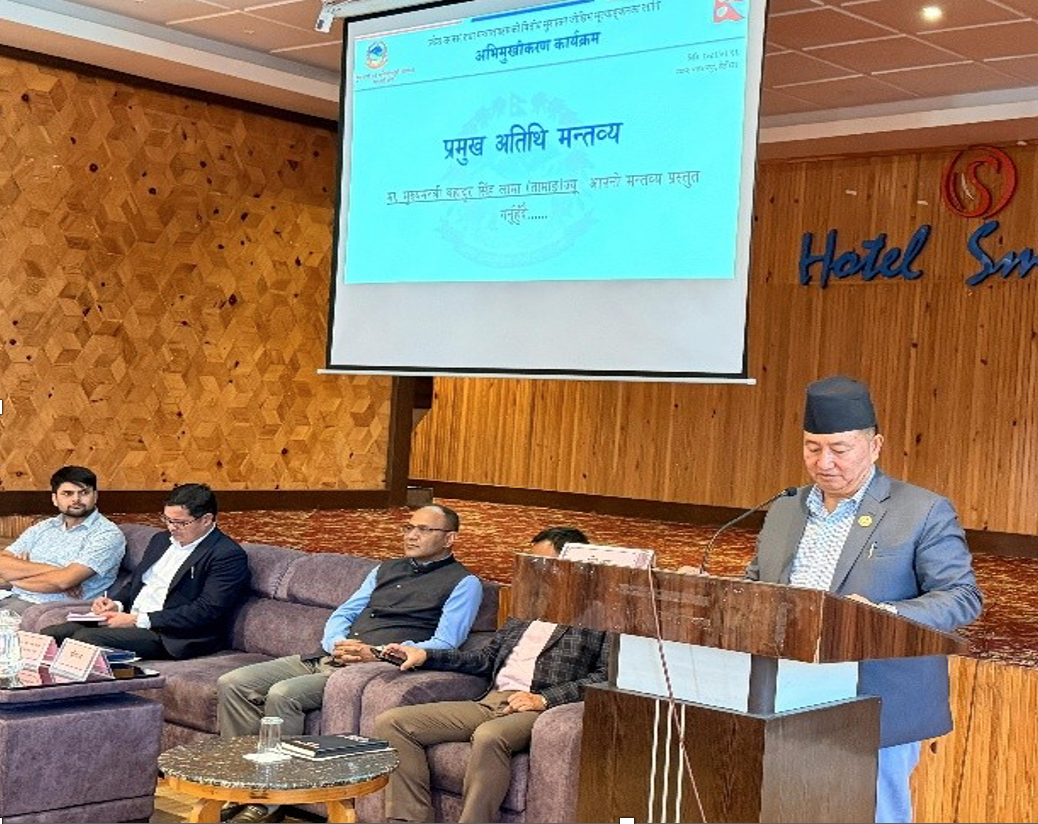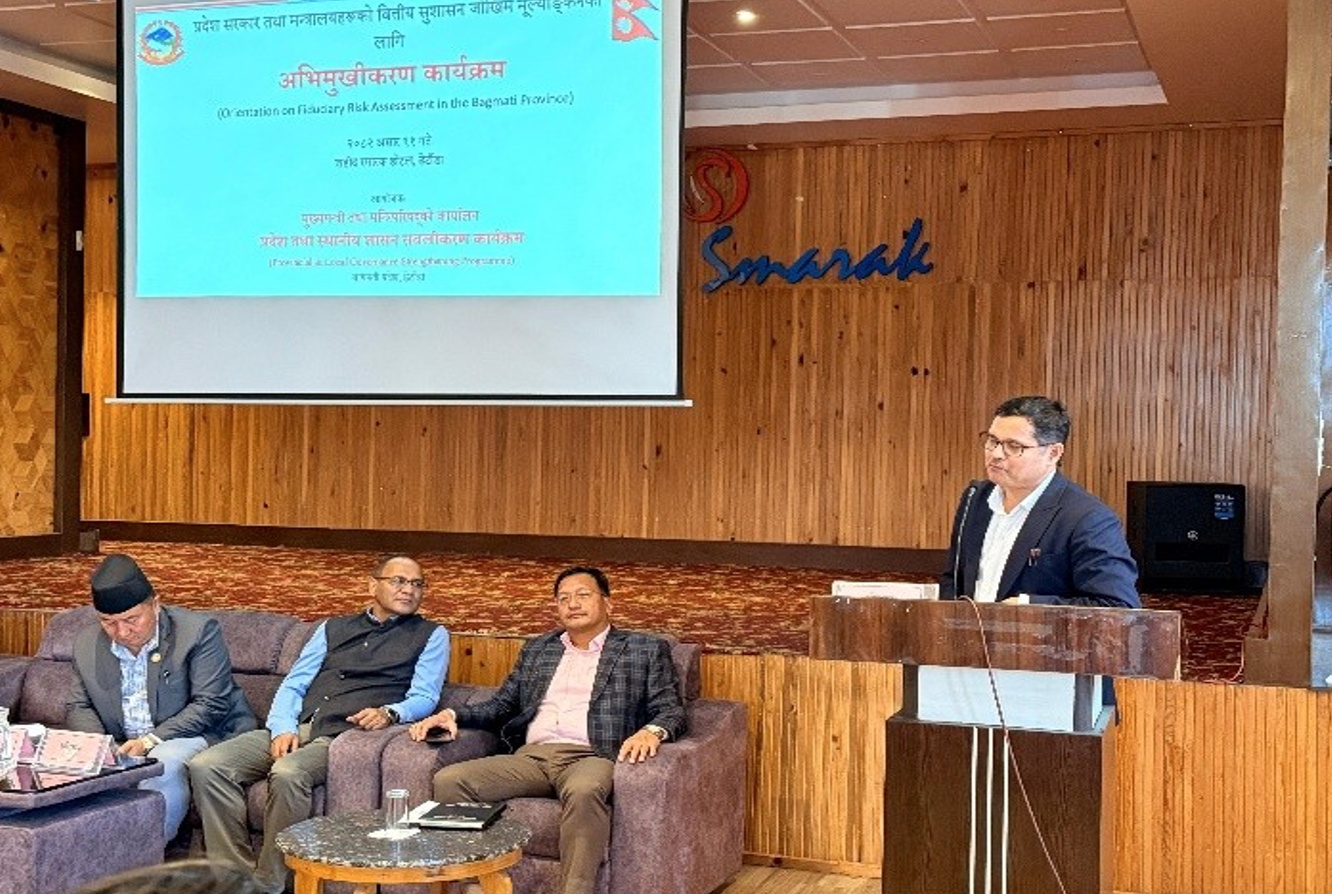As part of Bagmati Province’s ongoing public financial management (PFM) reform, a one-day orientation programme was organized to enhance understanding and application of the Fiduciary Governance Risk Assessment (FGRA) Guideline, 2078. This event aimed to build institutional capacity in planning, budgeting, programming, and reporting processes while fostering transparency, accountability, and evidence-based decision-making. The event was organized by Office of the Chief Minister and Council of Ministers (OCMCM), with technical facilitation from the Provincial Treasury Controller’s Office (PTCO), external ICT experts, and support from PLGSP Technical Assistance (TA) Team.
The programme brought together 35 participants from provincial ministries and agencies, including planning heads, administrative and accounting officers, technical experts, subject specialists, and representatives from the OCMCM and TA teams. Senior-level participation included the Hon. Chief Minister and provincial secretaries, demonstrating strong political commitment to improving fiscal governance.
The session emphasized practical understanding of the FGRA framework and included hands-on training on the use of online tools and indicator-based scoring. Key components discussed were:
- Indicator structure for assessing fiduciary risk at ministerial and provincial levels.
- Five focus areas: planning & budgeting, implementation, accounting & reporting, M&E, and revenue management.
- Risk classification systems and documentation protocols for online reporting.
Key outputs and learnings:
- Deepened understanding of the 51 indicators for ministries and 28 for provincial government used to classify fiduciary risk as high, medium, or low.
- Participants engaged in live online data entry practice and action plan development sessions.
- Identification of critical capacity gaps, including lack of clarity in some indicators, weak documentation practices, and limited prior application of the tool.
Looking ahead, each ministry will carry out a self-assessment using the FGRA guideline and submit results through the designated online platform. These assessments will inform the development of targeted action plans, which will be integrated into the upcoming fiscal year’s budgets and programmes. The Office of the Chief Minister and Council of Ministers (OCMCM) will continue to play a key role in monitoring progress and providing technical support to ensure quality, consistency, and meaningful application of the FRA process across provincial entities.



